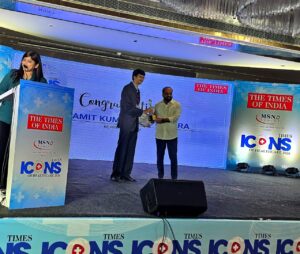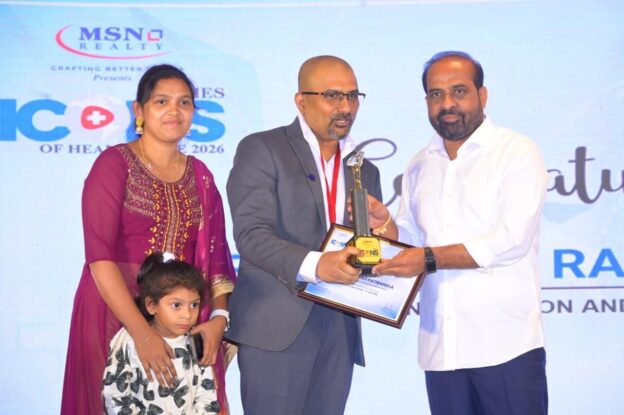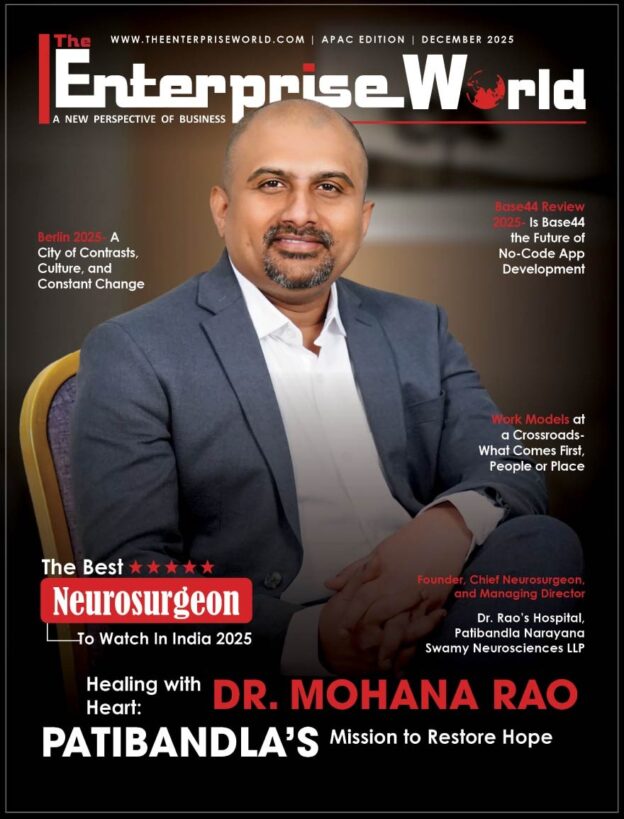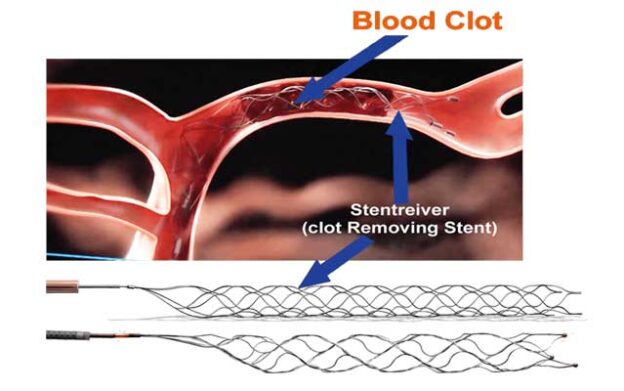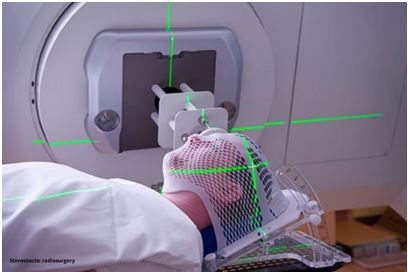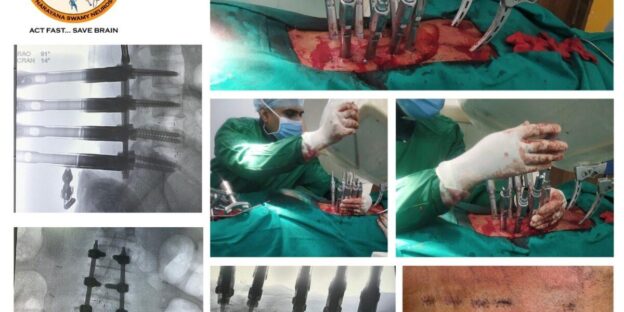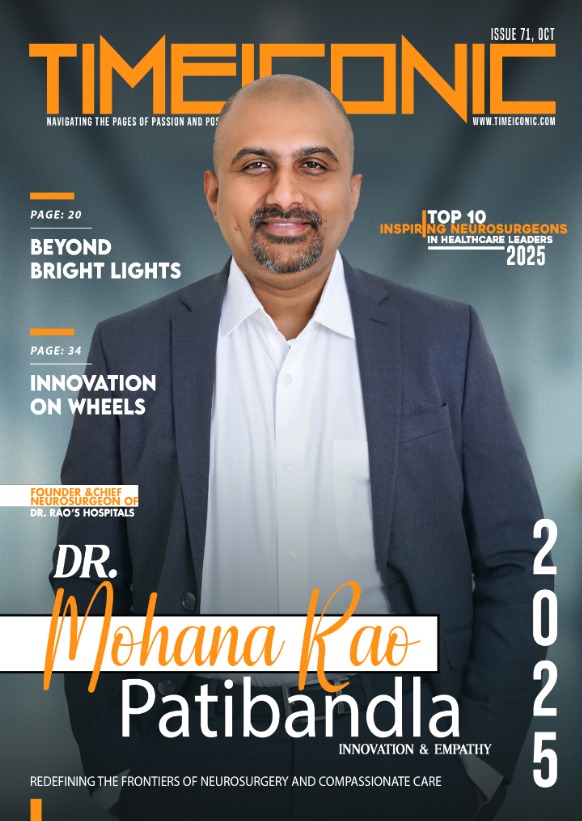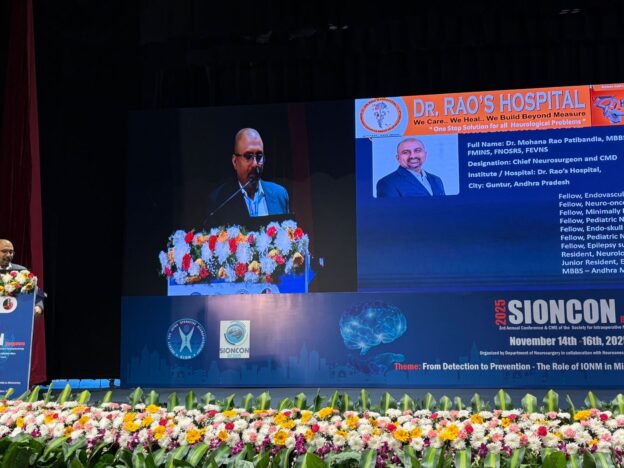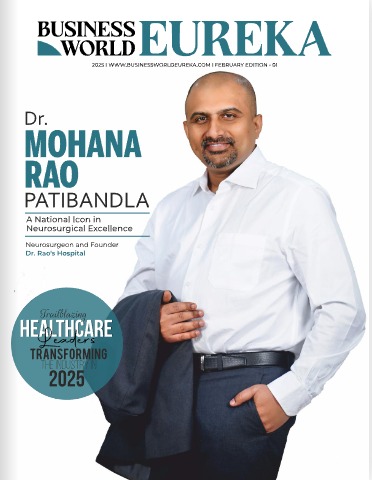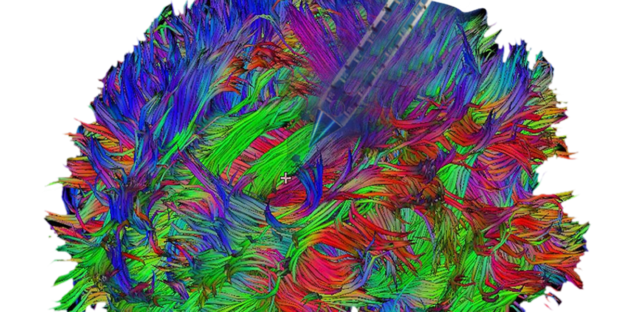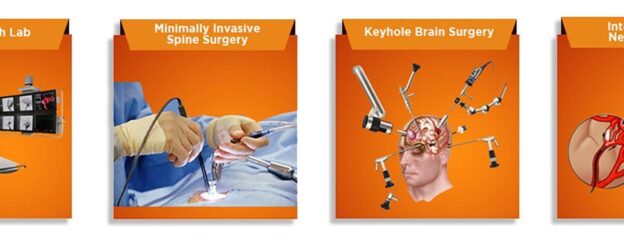Back Pain for More Than 3 Months? When Surgery Becomes Necessary
Back pain is one of the most common reasons people seek medical care. But when back pain for more than 3 months starts affecting sleep, work, and daily life, many patients ask a critical question: “Should I consider surgery for chronic back pain?”
3 నెలలకు పైగా వెన్నునొప్పి ఉందా? ఎప్పుడు శస్త్రచికిత్స అవసరం అవుతుంది?
వెన్నునొప్పి (Back Pain) ఈ రోజుల్లో చాలా సాధారణ సమస్య. చాలా మందికి ఇది కొన్ని రోజులు లేదా వారాల్లో తగ్గిపోతుంది. కానీ 3 నెలలకు పైగా వెన్నునొప్పి కొనసాగితే, దాన్ని సాధారణ నొప్పిగా నిర్లక్ష్యం చేయకూడదు.
ఈ వ్యాసంలో మీరు తెలుసుకుంటారు: ఎప్పుడు వెన్నునొప్పి ప్రమాదకరం అవుతుంది, మందులు–ఫిజియోథెరపీ ఎందుకు పనిచేయకపోవచ్చు, ఎప్పుడు స్పైన్ సర్జరీ అవసరం అవుతుంది,
మరియు ఆధునిక మినిమల్లి ఇన్వేసివ్ చికిత్సలు ఏమిటి.
దీర్ఘకాలిక వెన్నునొప్పి అంటే ఏమిటి?
3 నెలలకు పైగా కొనసాగుతున్న వెన్నునొప్పిని “Chronic Back Pain” అంటారు.
ఈ దశలో నొప్పి:
- మందులతో తగ్గదు
- ఫిజియోథెరపీ చేసినా మళ్లీ వస్తుంది
- రోజువారీ జీవితం ప్రభావితం చేస్తుంది
ఇది సాధారణ మసిల్ నొప్పి కాకుండా లోపల నరాలు లేదా వెన్నెముక సమస్యకు సంకేతం కావచ్చు.
3 నెలలకు పైగా వెన్నునొప్పికి సాధారణ కారణాలు
- డిస్క్ ప్రోలాప్స్ (Slipped Disc)
- లంబార్ కెనాల్ స్టెనోసిస్
- స్పాండిలోలిస్థీసిస్
- నరాలపై ఒత్తిడి (Nerve Compression)
- డిజెనరేటివ్ స్పైన్ మార్పులు
ఎప్పుడు వెన్నునొప్పి ప్రమాద సంకేతం అవుతుంది?
ఈ లక్షణాలు ఉంటే వెంటనే స్పైన్ స్పెషలిస్ట్ లేదా న్యూరోసర్జన్ను కలవాలి:
- నడుము నుంచి కాళ్లకు నొప్పి (సైయాటికా)
- కాళ్లలో బలహీనత
- మొద్దుబారడం లేదా చిమ్మటలాంటివి
- నడవడంలో ఇబ్బంది
- మూత్రం లేదా మల నియంత్రణ లేకపోవడం
ఇవి నరాలపై తీవ్రమైన ఒత్తిడి ఉందని సూచిస్తాయి.
మందులు & ఫిజియోథెరపీ ఎందుకు పని చేయవు?
ప్రారంభ దశలో మందులు, వ్యాయామాలు సరిపోతాయి.
కానీ:
- డిస్క్ బాగా జారిపోయినప్పుడు
- నరాలు బాగా నలిగినప్పుడు
- వెన్నెముక స్థిరత్వం కోల్పోయినప్పుడు
మందులు కేవలం నొప్పిని తగ్గిస్తాయి –
కారణాన్ని తొలగించలేవు.
అయితే… ఎప్పుడు శస్త్రచికిత్స అవసరం అవుతుంది?
కింది పరిస్థితుల్లో స్పైన్ సర్జరీ సరైన ఎంపిక అవుతుంది:
- 3 నెలలకు పైగా నొప్పి తగ్గకపోతే
- మందులు, ఫిజియోథెరపీ పనిచేయకపోతే
- కాళ్ల బలహీనత పెరుగుతుంటే
- MRI లో నరాల ఒత్తిడి స్పష్టంగా కనిపిస్తే
సరైన సమయంలో చేసిన సర్జరీ శాశ్వత నరాల నష్టాన్ని నివారిస్తుంది.
ఆధునిక మినిమల్లి ఇన్వేసివ్ స్పైన్ సర్జరీ
ఈ రోజుల్లో వెన్నెముక శస్త్రచికిత్స అంటే పెద్ద కట్, ఎక్కువ రోజులు బెడ్రెస్ట్ అనే మాట కాదు.
MISS డీకంప్రెషన్
- చిన్న కట్
- నరాలపై ఒత్తిడి తొలగింపు
- త్వరగా నడవగలగడం
MIS ఫిక్సేషన్
- వెన్నెముక అస్థిరత ఉన్నప్పుడు
- చిన్న స్క్రూలతో స్థిరత్వం
మైక్రోస్కోపిక్ / ఎండోస్కోపిక్ ఫ్యూజన్
- అత్యంత ఖచ్చితమైన శస్త్రచికిత్స
- తక్కువ నొప్పి, వేగవంతమైన రికవరీ
స్పైన్ సర్జరీ తర్వాత కోలుకోవడం
- 1–2 రోజుల్లో నడవడం
- కాళ్ల నొప్పి త్వరగా తగ్గడం
- కొన్ని వారాల్లో సాధారణ జీవితం
సరైన రిహ్యాబిలిటేషన్తో ఫలితాలు మరింత మెరుగ్గా ఉంటాయి.
శస్త్రచికిత్స ఆలస్యం చేస్తే ఏమవుతుంది?
- శాశ్వత నరాల నష్టం
- కాళ్ల బలహీనత మిగిలిపోవడం
- సర్జరీ ఫలితాలు తగ్గిపోవడం
అందుకే సరైన సమయంలో నిర్ణయం చాలా ముఖ్యం.
డా. రావు హాస్పిటల్లో వెన్నునొప్పి చికిత్స
డా. రావు హాస్పిటల్ లో దీర్ఘకాలిక వెన్నునొప్పికి ఆధునిక, నైతిక చికిత్స అందించబడుతుంది.
స్పైన్ సర్జరీ సేవలు Dr. Mohana Rao Patibandla నాయకత్వంలో జరుగుతాయి.
మీ వెన్నునొప్పి జీవితాన్ని నియంత్రించనివ్వకండి
3 నెలలకు పైగా వెన్నునొప్పితో బాధపడుతున్నారా? సరైన నిర్ధారణ మరియు చికిత్సతో నొప్పి నుంచి విముక్తి సాధ్యమే.
📞 090100 56444
📧 info@drraoshospitals.com
📍 అపాయింట్మెంట్ కోసం సంప్రదించండి
గుర్తుంచుకోండి: నొప్పితో జీవించాల్సిన అవసరం లేదు.
Facebook |
Instagram |
YouTube |
LinkedIn |
X (Twitter)
While most back pain improves with rest, physiotherapy, and medications, a subset of patients develop persistent back pain not improving despite appropriate treatment. In such cases, surgery may become the best option to relieve pain, restore function, and protect nerves.
This in-depth guide explains when surgery becomes necessary for back pain, warning signs you should not ignore, and modern minimally invasive spine surgery options available in Guntur.
What Is Considered Chronic Back Pain?
Back pain is considered chronic when it lasts longer than 12 weeks (3 months) despite conservative treatment.
According to the World Health Organization (WHO), chronic low back pain is a leading cause of disability worldwide and significantly impacts quality of life.
Common descriptions include:
- Back pain lasting months
- Persistent low back pain not responding to physiotherapy
- Recurrent back pain with leg pain (sciatica)
Common Causes of Chronic Low Back Pain
Understanding the cause is essential before deciding on surgery.
1. Lumbar Disc Herniation (Slipped Disc)
A slipped or herniated disc can compress spinal nerves, causing chronic back pain with leg pain.
2. Spinal Stenosis
Narrowing of the spinal canal leads to nerve compression, causing pain, numbness, and difficulty walking.
3. Degenerative Disc Disease
Age-related disc wear can cause persistent mechanical back pain.
4. Spondylolisthesis
One vertebra slipping over another can cause instability and nerve compression.
5. Facet Joint Arthritis
Degeneration of spinal joints causes chronic localized back pain.
Back Pain for More Than 3 Months: What Should You Do First?
Before surgery is considered, patients should undergo adequate conservative treatment, including:
- Activity modification
- Physiotherapy and core strengthening
- Pain medications and anti-inflammatories
- Lifestyle and ergonomic changes
- Spine injections (when indicated)
If back pain is not responding to physiotherapy, medications, or injections, further evaluation by a spine specialist is necessary.
When Does Surgery Become Necessary for Back Pain?
Surgery is considered when:
- Back pain lasts more than 3 months despite treatment
- Pain is severe and disabling
- There is nerve compression with weakness or numbness
- Quality of life is significantly reduced
The goal of surgery is not just pain relief, but also nerve protection and functional recovery.
Signs You Need Back Surgery (Do Not Ignore)
1. Back Pain with Leg Pain (Sciatica) Lasting More Than 3 Months
Persistent sciatica suggests ongoing nerve compression and may require surgical decompression.
2. Weakness in Legs
Progressive leg weakness indicates nerve damage and is a strong indication for surgery.
3. Numbness or Tingling in Legs or Feet
Persistent sensory symptoms may indicate chronic nerve compression.
4. Difficulty Walking or Standing
Common in lumbar canal stenosis and worsens without surgery.
5. Bladder or Bowel Problems (Emergency)
Loss of bladder or bowel control may indicate cauda equina syndrome, requiring immediate surgery.
When to See a Neurosurgeon or Spine Surgeon for Back Pain?
You should consult a neurosurgeon when:
- Back pain lasts more than 3 months
- Conservative treatments have failed
- There is leg pain, weakness, or numbness
- MRI shows nerve compression
A chronic back pain neurosurgeon evaluates both surgical and non-surgical options and recommends surgery only when truly necessary.
Do All Chronic Back Pain Patients Need Surgery?
No. Most chronic back pain patients do not need surgery.
Surgery is recommended only when:
- The pain generator is clearly identified
- Symptoms match MRI findings
- Non-surgical treatments have failed
This careful selection leads to better outcomes.
Types of Spine Surgery for Chronic Back Pain
Minimally Invasive Spine Surgery
Uses small incisions, less muscle damage, and faster recovery.
Endoscopic Spine Surgery
Keyhole surgery using a camera to remove disc or bone pressure.
Laser Spine Surgery
Used selectively for specific disc problems.
Spinal Decompression Surgery
Relieves pressure on nerves in spinal stenosis.
Spinal Fusion Surgery
Stabilizes the spine in cases of instability.
Spine Surgery Recovery for Chronic Back Pain
Most patients experience:
- Early pain relief
- Improved walking ability
- Return to daily activities within weeks
Minimally invasive techniques significantly reduce hospital stay and recovery time.
Spine Surgery Success Rate for Chronic Back Pain
Success depends on correct diagnosis and technique.
According to studies published on PubMed, appropriately selected patients undergoing spine surgery report significant pain relief and functional improvement.
Back Pain Surgery Risks vs Benefits
Benefits:
- Pain relief
- Nerve recovery
- Improved quality of life
Risks:
- Infection (rare)
- Nerve injury (very rare)
- Need for further treatment
Modern spine surgery has a high safety profile when performed by experienced surgeons.
Why Choose Dr. Rao’s Hospital for Back Pain Surgery in Guntur?
Dr. Rao’s Hospital is a leading spine surgery hospital in Guntur, offering advanced care for chronic back pain.
Spine surgeries are led by Dr. Mohana Rao Patibandla, widely regarded as one of the best neurosurgeons for back pain in Guntur.
Key advantages include:
- Minimally invasive and endoscopic spine surgery
- Advanced imaging and navigation
- Patient-focused decision-making
Learn more about Spine Surgery and Dr. Mohana Rao Patibandla.
When does back pain need surgery?
Back pain needs surgery when it lasts more than 3 months, does not improve with treatment, and is associated with nerve compression, weakness, or severe disability.
What are the warning signs that back surgery is needed?
Warning signs include leg weakness, numbness, worsening sciatica, difficulty walking, and bladder or bowel problems.
Why choose Dr. Rao’s Hospital for spine surgery?
At Dr. Rao’s Hospital, led by Dr. Mohana Rao Patibandla, patients receive advanced minimally invasive spine surgery with personalized care.
Consult the Best Spine Surgeon in Guntur
If you are suffering from back pain for more than 3 months and conservative treatments have failed, expert evaluation is essential.
For advanced spine care, consult the best neurosurgeon in Guntur at Dr. Rao’s Hospital.
📞 090100 56444
📧 info@drraoshospitals.com
📍 Contact Dr. Rao’s Hospital
Facebook |
Instagram |
YouTube |
LinkedIn |
X (Twitter)
How the Decision for Back Surgery Is Made
Deciding on surgery for chronic back pain is never based on pain alone. A spine specialist carefully evaluates whether surgery will genuinely improve your condition.
The decision is usually based on a combination of:
- Duration of symptoms (typically more than 3 months)
- Failure of structured conservative treatment
- Correlation between MRI findings and symptoms
- Presence of neurological deficits such as weakness or numbness
- Impact on quality of life and daily function
When imaging findings match symptoms and nerve compression is clearly identified, surgery offers predictable and durable relief.
Why Delaying Necessary Surgery Can Be Harmful
Many patients tolerate pain for months or years hoping it will improve. However, delaying surgery when it is clearly indicated can lead to:
- Permanent nerve damage
- Persistent leg weakness
- Chronic numbness or foot drop
- Reduced success of delayed surgery
Early intervention, when recommended, often results in better nerve recovery and faster return to normal life.
Chronic Back Pain and Quality of Life
Chronic back pain does not affect only the spine. It impacts:
- Sleep quality
- Work productivity
- Mental health and mood
- Family and social life
Patients who undergo timely spine surgery after failed conservative treatment frequently report not just pain relief, but a significant improvement in overall quality of life.
Second Opinions in Back Pain Surgery: Are They Necessary?
Yes. In chronic back pain, a second opinion is often valuable, especially when surgery is being considered.
A second spine surgeon opinion helps to:
- Confirm the exact pain generator
- Avoid unnecessary surgery
- Explore minimally invasive alternatives
- Understand realistic outcomes and recovery
Patients can safely seek a second opinion even after being advised surgery elsewhere.
Why Experience Matters in Spine Surgery
Spine surgery outcomes are closely linked to the surgeon’s experience, decision-making, and technology used.
At Dr. Rao’s Hospital, spine surgeries are performed under the leadership of Dr. Mohana Rao Patibandla, with a strong emphasis on:
- Correct patient selection
- Minimally invasive approaches whenever possible
- Nerve preservation and functional recovery
- Ethical, patient-first recommendations
This approach minimizes unnecessary surgery while ensuring timely intervention for patients who truly need it.
Key Takeaway: When Is Surgery the Best Option for Back Pain?
Surgery becomes the best option when:
- Back pain lasts more than 3 months
- Physiotherapy, medications, and injections fail
- Nerve compression causes leg pain, weakness, or numbness
- Daily activities and independence are compromised
In these situations, spine surgery is not a last resort—it is a solution to prevent long-term disability.
Book a Spine Specialist Consultation in Guntur
If you are living with chronic back pain for more than 3 months and conservative treatments have not helped, expert evaluation is the next step.
Consult the spine team at Dr. Rao’s Hospital, a trusted spine surgery hospital in Guntur, for accurate diagnosis and advanced treatment options.
📞 090100 56444
📧 info@drraoshospitals.com
Don’t let chronic back pain decide your life. Get clarity, get answers, and get moving again.
🌐 Dr. Rao’s Hospital – Official Website
🧠 Neurosurgery Department
🦴 Spine Surgery Services
🩺 Neurology Services
👨⚕️ About Dr. Mohana Rao Patibandla
📍 Contact & Appointments
Facebook |
Instagram |
YouTube |
LinkedIn |
X (Twitter)
What to Expect After Spine Surgery for Chronic Back Pain
Patients often worry about life after spine surgery. With modern minimally invasive and endoscopic techniques, recovery is significantly faster than traditional open surgery.
Most patients can expect:
- Early relief from leg pain caused by nerve compression
- Gradual improvement in back pain over weeks
- Walking on the same or next day in most cases
- Short hospital stay with structured rehabilitation
Recovery timelines vary depending on the condition treated, overall health, and adherence to post-surgery guidance.
Can Chronic Back Pain Return After Surgery?
When surgery is performed for the correct indication, recurrence of symptoms is uncommon. However, spine health is lifelong.
To maintain long-term results, patients are advised to:
- Follow physiotherapy and core-strengthening programs
- Maintain proper posture and ergonomics
- Avoid smoking and maintain healthy body weight
- Attend scheduled follow-up visits
Surgery treats the structural problem, while lifestyle measures protect long-term spine health.
Is Spine Surgery Worth It for Chronic Back Pain?
For patients with clearly identified nerve compression or spinal instability, spine surgery can be life-changing.
Patients commonly report:
- Return to work and normal activities
- Improved sleep and mobility
- Reduced dependence on pain medications
- Better overall quality of life
The key is choosing the right patient, the right procedure, and the right surgical team.
Why a Specialized Spine Center Makes a Difference
Outcomes in spine surgery improve significantly when care is delivered at a dedicated center with advanced imaging, navigation, and multidisciplinary expertise.
At Dr. Rao’s Hospital, spine care emphasizes:
- Evidence-based surgical decision-making
- Minimally invasive and endoscopic techniques
- Comprehensive pre- and post-operative care
All surgical recommendations are made only after confirming that surgery will offer meaningful benefit.
Final Thought: Don’t Normalize Long-Term Back Pain
Living with back pain for months or years is not normal and should not be accepted as inevitable.
If your pain is persistent, progressive, or affecting your independence, expert evaluation can help identify whether surgery is necessary—or reassure you when it is not.
Consult a Spine Specialist in Guntur
If you have back pain for more than 3 months and conservative treatments have failed, it is time for an expert opinion.
At Dr. Rao’s Hospital, spine care is led by Dr. Mohana Rao Patibandla, offering advanced, ethical, and patient-focused treatment for chronic back pain.
📞 090100 56444
📧 info@drraoshospitals.com
Get clarity. Get the right treatment. Get back to living.
🌐 Dr. Rao’s Hospital – Official Website
🦴 Spine Surgery Department
🧠 Neurosurgery Services
🩺 Neurology Services
👨⚕️ About Dr. Mohana Rao Patibandla
📍 Appointments & Contact
Facebook |
Instagram |
YouTube |
LinkedIn |
X (Twitter)
Modern Surgical Options for Chronic Back Pain
When surgery becomes necessary for chronic back pain, the goal today is clear: maximum nerve relief with minimum tissue damage. Modern spine surgery focuses on minimally invasive techniques that reduce pain, blood loss, and recovery time.
The choice of procedure depends on the exact diagnosis, spinal stability, and nerve involvement.
MISS Decompression (Minimally Invasive Spine Surgery)
MISS decompression is commonly used for conditions where nerve pressure is the main cause of pain, such as lumbar disc herniation or spinal stenosis.
This procedure involves removing only the structures compressing the nerve while preserving muscles and spinal stability.
Common indications:
- Lumbar disc herniation with chronic sciatica
- Lumbar canal stenosis causing leg pain and walking difficulty
- Nerve compression without spinal instability
Key benefits:
- Small incision
- Less muscle injury
- Early mobilization
- Short hospital stay
MIS Fixation for Chronic Back Pain
Minimally invasive fixation (MIS fixation) is recommended when chronic back pain is associated with spinal instability.
Using percutaneous screws and rods, the spine is stabilized without extensive muscle dissection.
When MIS fixation is needed:
- Spondylolisthesis with nerve compression
- Degenerative instability causing back and leg pain
- Failed decompression requiring stabilization
Advantages of MIS fixation:
- Reduced blood loss
- Lower infection risk
- Faster recovery compared to open surgery
MIS Fusion Surgery for Chronic Back Pain
Minimally invasive spinal fusion (MIS fusion) is performed when painful motion between vertebrae must be permanently stabilized.
Fusion may be required in cases of severe degeneration, instability, or recurrent disc problems.
Microscopic MIS Fusion
Microscopic fusion uses high-magnification visualization to perform precise decompression and fusion through small incisions.
Best suited for:
- Single- or two-level lumbar instability
- Degenerative disc disease with nerve compression
Endoscopic MIS Fusion
Endoscopic fusion is an advanced keyhole technique using a camera-assisted approach to decompress nerves and place fusion hardware with minimal tissue disruption.
Benefits of endoscopic fusion:
- Very small incisions
- Minimal muscle damage
- Less postoperative pain
- Faster return to daily activities
This technique is particularly useful for selected patients with chronic back pain and nerve compression.
Choosing the Right Procedure: Why Individualized Planning Matters
No single surgery fits all chronic back pain patients.
The correct approach depends on:
- Exact cause of pain (disc, nerve, or instability)
- MRI correlation with symptoms
- Patient age, bone quality, and activity level
- Previous spine treatments or surgeries
At specialized spine centers, the emphasis is always on the least invasive procedure that provides lasting relief.
Why Advanced MIS Spine Surgery Requires Expertise
Minimally invasive and endoscopic spine surgery demand advanced training, experience, and technology.
At Dr. Rao’s Hospital, these procedures are performed under the leadership of Dr. Mohana Rao Patibandla, with a focus on:
- Precision nerve decompression
- Stability preservation
- Functional recovery, not just pain relief
This expertise ensures high success rates with low complication risks.
Final Clinical Insight
If chronic back pain is due to ongoing nerve compression or spinal instability, modern MISS decompression, MIS fixation, or MIS fusion—performed microscopically or endoscopically—can provide durable relief and restore mobility.
The key is timely, accurate decision-making.
Consult a Minimally Invasive Spine Surgery Expert in Guntur
If you have back pain for more than 3 months and conservative treatments have failed, expert evaluation is crucial to determine whether MISS decompression, MIS fixation, or MIS fusion is right for you.
At Dr. Rao’s Hospital, patients receive advanced spine care from one of the best neurosurgeons for back pain in Guntur, using cutting-edge minimally invasive and endoscopic techniques.
📞 090100 56444
📧 info@drraoshospitals.com
Don’t live with chronic pain. Get the right diagnosis and the right surgery—only if you truly need it.
🌐 Dr. Rao’s Hospital – Official Website
🦴 Spine Surgery Department
🧠 Neurosurgery Services
🩺 Neurology Services
👨⚕️ About Dr. Mohana Rao Patibandla
📍 Appointments & Contact
Facebook |
Instagram |
YouTube |
LinkedIn |
X (Twitter)
Recovery After MISS Decompression Surgery
Recovery following MISS decompression is usually rapid because muscle damage and blood loss are minimal. The primary goal after surgery is early mobilization while protecting the decompressed nerve.
Typical recovery milestones:
- Walking within 6–24 hours after surgery
- Significant relief of leg pain (sciatica) within days
- Discharge from hospital in 1–2 days
- Return to desk work in 1–2 weeks
Physiotherapy focuses on gentle stretching, posture correction, and gradual core strengthening. Most patients resume normal daily activities quickly, with restrictions only on heavy lifting for a few weeks.
Recovery After MIS Fixation Surgery
MIS fixation stabilizes the spine using percutaneous screws and rods, allowing faster recovery compared to traditional open fixation.
What patients can expect:
- Walking within 24–48 hours after surgery
- Marked reduction in back and leg pain over weeks
- Hospital stay of 3–4 days in most cases
- Use of a lumbar belt temporarily, if advised
Bone healing and stabilization continue over several months, but patients are usually able to return to light work within 4–6 weeks under guidance.
Recovery After MIS Fusion Surgery
Recovery after fusion surgery depends on the technique used and the number of levels treated. Modern MIS fusion significantly shortens recovery compared to open fusion.
Recovery After Microscopic MIS Fusion
Microscopic fusion allows precise nerve decompression and fusion through small incisions.
Recovery highlights:
- Early ambulation within 1–2 days
- Gradual improvement in back stability and pain
- Return to routine activities in 6–8 weeks
- Fusion maturation over 6–12 months
Patients are guided through phased rehabilitation to ensure safe fusion and long-term spinal stability.
Recovery After Endoscopic MIS Fusion
Endoscopic fusion offers the least tissue disruption among fusion techniques, resulting in faster early recovery.
Key recovery advantages:
- Very small skin incisions
- Less postoperative pain
- Earlier return to daily activities
- Shorter hospital stay in selected patients
This approach is ideal for carefully selected patients and requires specialized expertise.
Rehabilitation: The Key to Long-Term Success
Regardless of the surgical technique, structured rehabilitation is essential for optimal outcomes.
Rehabilitation focuses on:
- Core muscle strengthening
- Posture and ergonomic correction
- Gradual return to activity
- Prevention of recurrence
Patients who actively participate in rehabilitation programs experience better pain relief, mobility, and long-term spine health.
When Should You Contact Your Surgeon After Spine Surgery?
While most recoveries are smooth, patients should contact their spine surgeon if they experience:
- Worsening pain or new weakness
- Fever or wound-related concerns
- New numbness or bladder issues
Early communication helps address concerns promptly and ensures safe recovery.
Final Perspective on Recovery After MIS Spine Surgery
Modern MISS decompression, MIS fixation, and MIS fusion—whether microscopic or endoscopic—are designed to restore mobility while minimizing disruption to normal anatomy.
With correct indication, expert execution, and guided rehabilitation, most patients regain function, independence, and quality of life.
Plan Your Recovery With a Spine Specialist in Guntur
If you are considering or have been advised spine surgery for chronic back pain, expert guidance is essential—not only for surgery, but also for recovery planning.
At Dr. Rao’s Hospital, spine care and recovery protocols are led by Dr. Mohana Rao Patibandla, offering advanced minimally invasive and endoscopic spine surgery with patient-focused rehabilitation.
📞 090100 56444
📧 info@drraoshospitals.com
Right surgery is important. Right recovery makes it successful.
🌐 Dr. Rao’s Hospital – Official Website
🦴 Spine Surgery Department
🧠 Neurosurgery Services
🩺 Neurology Services
👨⚕️ About Dr. Mohana Rao Patibandla
📍 Appointments & Contact
Facebook |
Instagram |
YouTube |
LinkedIn |
X (Twitter)
❓ What does it mean if back pain lasts more than 3 months?
Back pain lasting more than 3 months is considered chronic. It usually indicates an underlying structural problem such as disc herniation, spinal stenosis, or instability, especially if pain does not improve with physiotherapy or medications.
❓ When does chronic back pain require surgery?
Chronic back pain requires surgery when it lasts over 3 months, fails conservative treatment, and is associated with nerve compression, leg pain, weakness, numbness, or reduced quality of life confirmed on MRI.
❓ How do I know if I need back surgery?
You may need back surgery if pain persists despite treatment, radiates to the legs, causes weakness or numbness, affects walking, or interferes with daily activities. Imaging must correlate with symptoms before surgery is advised.
❓ Is back pain surgery a last resort?
Back pain surgery is not a last resort but a targeted solution when non-surgical treatments fail and nerve damage is progressing. Timely surgery often prevents permanent nerve injury and improves long-term outcomes.
❓ What are the warning signs that back surgery is needed?
Warning signs include persistent sciatica, leg weakness, numbness, difficulty walking, foot drop, or bladder and bowel problems. These symptoms suggest nerve compression and require urgent spine surgeon evaluation.
❓ What happens if I delay surgery for chronic back pain?
Delaying necessary back surgery can lead to permanent nerve damage, persistent weakness, chronic numbness, and reduced surgical success later. Early intervention offers better nerve recovery and functional outcomes.
❓ What is MISS decompression surgery?
MISS decompression is a minimally invasive spine surgery that relieves pressure on spinal nerves through small incisions, preserving muscles and stability. It is commonly used for slipped disc and spinal stenosis with leg pain.
❓ When is MIS fixation required for back pain?
MIS fixation is required when chronic back pain is caused by spinal instability, such as spondylolisthesis or degenerative instability, especially when nerve compression and mechanical pain coexist.
❓ What is the difference between MIS fusion and MIS fixation?
MIS fixation stabilizes the spine temporarily using screws and rods, while MIS fusion permanently joins vertebrae using bone grafts. Fusion is chosen when painful spinal movement must be permanently eliminated.
❓ Is endoscopic spine surgery safe for chronic back pain?
Yes. Endoscopic spine surgery is safe and effective in selected patients when performed by experienced surgeons. It uses very small incisions, causes minimal muscle damage, and allows faster recovery compared to open surgery.
❓ How long does recovery take after minimally invasive spine surgery?
Recovery after minimally invasive spine surgery is usually faster than open surgery. Most patients walk within 24–48 hours and return to light activities within weeks, depending on the procedure performed.
❓ Can chronic back pain return after spine surgery?
Chronic back pain rarely returns when surgery is done for the correct indication. Long-term success depends on proper rehabilitation, posture correction, core strengthening, and lifestyle modifications.
❓ Is spine surgery successful for chronic back pain?
Spine surgery has a high success rate when symptoms match imaging findings and the correct procedure is chosen. Patients commonly experience significant pain relief, improved mobility, and better quality of life.
❓ Should I get a second opinion before back surgery?
Yes. A second opinion helps confirm diagnosis, avoid unnecessary surgery, and explore minimally invasive options. It is especially valuable when long-term back pain surgery is being considered.
❓ Who is a spine surgery specialist in Guntur for chronic back pain?
At Dr. Rao’s Hospital, spine surgery is led by Dr. Mohana Rao Patibandla, known for minimally invasive and endoscopic spine surgery for chronic back pain in Guntur.
❓ Where can I consult a spine surgeon near me for chronic back pain?
Patients with chronic back pain can consult a spine specialist at Dr. Rao’s Hospital, Guntur, for expert evaluation, advanced imaging correlation, and personalized minimally invasive spine surgery options.
❓ Can chronic back pain heal without surgery after 3 months?
Some chronic back pain may improve without surgery, but pain lasting over 3 months with nerve compression, leg symptoms, or weakness is unlikely to resolve fully without surgical intervention.
❓ Does MRI decide whether back surgery is needed?
MRI alone does not decide surgery. Surgery is recommended only when MRI findings clearly match symptoms such as leg pain, weakness, numbness, or walking difficulty and conservative treatments have failed.
❓ What type of back pain does not need surgery?
Back pain caused by muscle strain, poor posture, or mild disc degeneration without nerve compression usually does not need surgery and improves with physiotherapy, lifestyle changes, and medical treatment.
❓ Is leg pain more serious than back pain?
Yes. Leg pain (sciatica) is often more concerning than back pain because it usually indicates nerve compression, which may require surgical treatment if symptoms persist or worsen.
❓ What is the success rate of MISS decompression surgery?
MISS decompression surgery has a high success rate in relieving leg pain caused by nerve compression when patients are properly selected and imaging findings correlate with symptoms.
❓ Who is not a candidate for minimally invasive spine surgery?
Patients with severe spinal deformity, infection, tumors, or complex multi-level instability may not be suitable for minimally invasive techniques and may require alternative surgical approaches.
❓ Is spine surgery painful after the operation?
Postoperative pain after minimally invasive spine surgery is usually mild to moderate and well controlled with medication. Pain is significantly less compared to traditional open spine surgery.
❓ How soon can I sit and walk after spine surgery?
Most patients can sit and walk within 24 to 48 hours after minimally invasive spine surgery, depending on the procedure performed and individual recovery factors.
❓ Can spine surgery prevent permanent nerve damage?
Yes. Timely spine surgery can prevent permanent nerve damage when performed before prolonged nerve compression causes irreversible weakness or numbness.
❓ What is cauda equina syndrome and why is it urgent?
Cauda equina syndrome is severe nerve compression causing back pain, leg weakness, numbness, and bladder or bowel problems. It is a surgical emergency requiring immediate spine surgery.
❓ Is age a limiting factor for spine surgery?
Age alone is not a limitation. Spine surgery depends more on overall health, bone quality, neurological status, and symptom severity rather than chronological age.
❓ Can I avoid fusion surgery if I need decompression?
Yes. Fusion is avoided whenever possible. Decompression alone is sufficient if there is no spinal instability. Fusion is added only when instability or painful motion is present.
❓ What happens if spine surgery fails?
Failed spine surgery is uncommon when indications are correct. Persistent symptoms may require reassessment, rehabilitation, or revision surgery, depending on the underlying cause.
❓ How do I choose the right spine surgeon?
Choose a spine surgeon based on experience, case selection, use of minimally invasive techniques, transparency about risks and benefits, and willingness to recommend non-surgical options when appropriate.
❓ Is chronic back pain affecting mental health?
Yes. Chronic back pain is strongly linked to anxiety, depression, sleep disturbance, and reduced quality of life, making timely and effective treatment essential.
❓ Where can I get advanced minimally invasive spine surgery in Guntur?
Advanced minimally invasive and endoscopic spine surgery for chronic back pain is available at Dr. Rao’s Hospital, led by Dr. Mohana Rao Patibandla, a trusted spine specialist in Guntur.
❓ When should I consider back surgery in Andhra Pradesh?
You should consider back surgery in Andhra Pradesh if back pain lasts more than three months, does not improve with physiotherapy or medications, and is associated with leg pain, weakness, numbness, or difficulty walking confirmed on MRI.
❓ Is spine surgery in India safe for chronic back pain?
Yes. Spine surgery in India is safe when performed at specialized centers using modern minimally invasive techniques by experienced spine surgeons, with outcomes comparable to international standards at significantly lower cost.
❓ How do I find the best spine surgeon in Andhra Pradesh?
Look for a spine surgeon with extensive experience, specialization in minimally invasive and endoscopic spine surgery, transparent decision-making, and treatment at a dedicated spine surgery hospital in Andhra Pradesh.
❓ What is the cost of back pain surgery in Andhra Pradesh?
The cost of back pain surgery in Andhra Pradesh depends on the condition, number of spinal levels involved, and type of minimally invasive or fusion procedure, but is generally more affordable than many other regions in India.
❓ When should I see a spine surgeon near me in India?
You should see a spine surgeon near you in India if back pain persists beyond three months, worsens over time, or is associated with leg pain, weakness, numbness, or bladder or bowel symptoms.
❓ Is leg pain more concerning than back pain in Indian patients?
Yes. In Indian patients, leg pain with back pain often indicates nerve compression such as slipped disc or spinal stenosis and should be evaluated early by a spine surgeon to avoid permanent nerve damage.
❓ Can minimally invasive spine surgery be done in Andhra Pradesh?
Yes. Advanced minimally invasive and endoscopic spine surgery is available in Andhra Pradesh at select centers, offering smaller incisions, faster recovery, and excellent outcomes for chronic back pain.
❓ How long does recovery take after spine surgery in India?
Recovery after minimally invasive spine surgery in India is usually fast, with most patients walking within 24–48 hours and returning to routine activities within a few weeks, depending on the procedure.
❓ Do Indian patients need fusion surgery for chronic back pain?
Fusion surgery is required only when chronic back pain is caused by spinal instability. Many Indian patients can be treated successfully with decompression alone if instability is not present.
❓ Is endoscopic spine surgery available in India for chronic back pain?
Yes. Endoscopic spine surgery is available in India at advanced centers and is effective for selected patients with disc herniation or nerve compression, offering minimal tissue damage and quicker recovery.
❓ What are emergency back pain symptoms that need surgery in India?
Emergency symptoms include sudden leg weakness, numbness in the groin area, or loss of bladder or bowel control. These may indicate cauda equina syndrome and require immediate spine surgery in India.
❓ Is age a limitation for spine surgery in India?
No. Age alone is not a limitation. Spine surgery in India is based on overall health, neurological status, and symptom severity rather than age, allowing safe treatment even in elderly patients.
❓ Can chronic back pain affect quality of life in Indian patients?
Yes. Chronic back pain significantly affects work, sleep, mobility, and mental health in Indian patients, making timely diagnosis and appropriate treatment essential to restore quality of life.
❓ Where can I get advanced spine surgery in Andhra Pradesh?
Advanced spine surgery in Andhra Pradesh is available at specialized hospitals like Dr. Rao’s Hospital, led by Dr. Mohana Rao Patibandla, offering minimally invasive and endoscopic spine surgery for chronic back pain.
❓ Is Andhra Pradesh a good destination for spine surgery in India?
Yes. Andhra Pradesh is emerging as a preferred destination for spine surgery in India due to skilled surgeons, modern technology, high success rates, and affordable treatment costs.
If you are considering or have been advised spine surgery for chronic back pain, expert guidance is essential—not only for surgery, but also for recovery planning.
At Dr. Rao’s Hospital, spine care and recovery protocols are led by Dr. Mohana Rao Patibandla, offering advanced minimally invasive and endoscopic spine surgery with patient-focused rehabilitation.
📞 090100 56444
📧 info@drraoshospitals.com
Right surgery is important. Right recovery makes it successful.
🌐 Dr. Rao’s Hospital – Official Website
🦴 Spine Surgery Department
🧠 Neurosurgery Services
🩺 Neurology Services
👨⚕️ About Dr. Mohana Rao Patibandla
📍 Appointments & Contact
Facebook |
Instagram |
YouTube |
LinkedIn |
X (Twitter)
